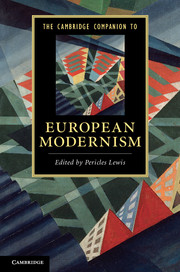7 - Russia
from PART I - “CORE” MODERNISMS
Published online by Cambridge University Press: 28 September 2011
Summary
The achievements of Russian modernism appear all the more extraordinary given how recent, if rapid, have been many of the major developments of Russian literature. Medieval Russia possessed little in the way of secular belles lettres; and when modern Russian literature arose in the eighteenth century, it was as the tentative by-product of a state-sponsored program of political modernization and cultural enlightenment. Acquiring new confidence, verbal suppleness, and cultural breadth with Aleksandr Pushkin and his romantic contemporaries, Russian literature finally came of age with realism and the nineteenth-century novel. In their epic reach, their social engagement, and their insistence on linking the nuances of psychology and character development to the larger metaphysical dimensions of human experience, the works of Tolstoi and Dostoevskii seemed to bend or extend novelistic form in ways unimaginable to the western European author. The Russian nineteenth-century novel vividly expresses the characteristic tendency of Russian literature to question the autonomy of the aesthetic sphere and the discursive mediation of institutional forms, in favor of a direct appeal to the antinomies of the spirit and the hope of renewed human solidarity. This impatience with conventions and distinctions, preceding but also fueling Russian modernist experimentation, can be attributed to many local factors.
- Type
- Chapter
- Information
- The Cambridge Companion to European Modernism , pp. 113 - 136Publisher: Cambridge University PressPrint publication year: 2011
- 1
- Cited by

